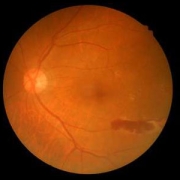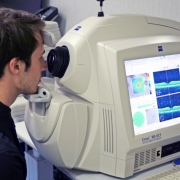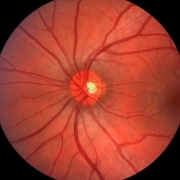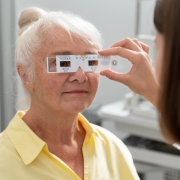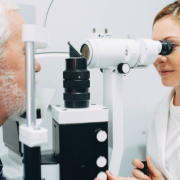Understanding Macular Degeneration
As you age, it’s important to be aware of macular degeneration. Macular degeneration most typically affects older folks, although there are rare instances when younger people are impacted. The most common kind is called age-related macular degeneration since it occurs in older adults. Understanding this condition is crucial for early detection and management of macular degeneration in Falls Church, VA.
Two Types of Age-related Macular Degeneration
The macula is a small but crucial part of the retina, which is the light-sensitive layer of tissue located at the back of the inner eye. It’s primarily responsible for central vision and color perception. Changes in these two areas of vision are often symptoms of the onset of age-related macular degeneration, or AMD.
The two types of AMD are wet and dry:
Dry Macular Degeneration – This form is more common and occurs when the macula thins over time, gradually blurring central vision. It’s characterized by the presence of drusen, which are tiny yellow deposits under the retina.
Wet Macular Degeneration – Less common but more severe, this type happens when abnormal blood vessels grow under the retina and leak fluid or blood, damaging the macula.
Why Does AMD Occur?
There are many reasons why AMD occurs. One is that it is simply a part of the aging process. Like other body parts, the macula ages, as well. A natural deterioration occurs, which is why this condition mainly affects older persons.
Another reason has to do with genetics. If you have a family member with AMD, your risk is higher and you’ll also develop the condition.
If you want to learn how to prevent AMD, you should be aware of lifestyle factors. Excess alcohol consumption, smoking, a sedentary lifestyle, and poor nutrition all increase your risk for AMD.
When you visit your optometrist in Falls Church, VA, we will check for signs of AMD. Contact us today for your next eye exam appointment.

